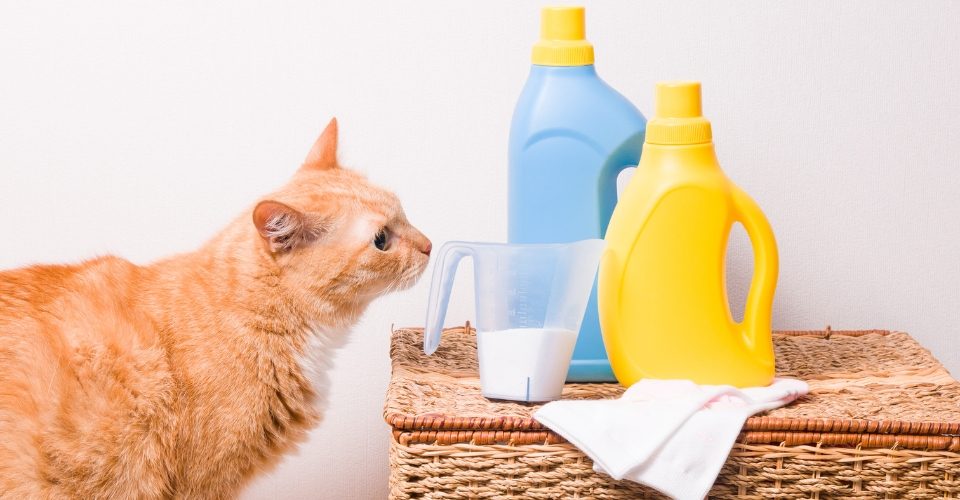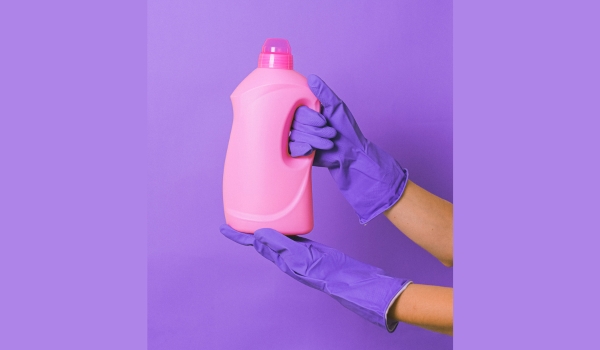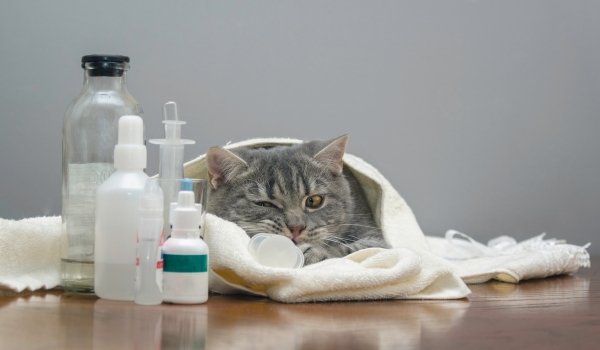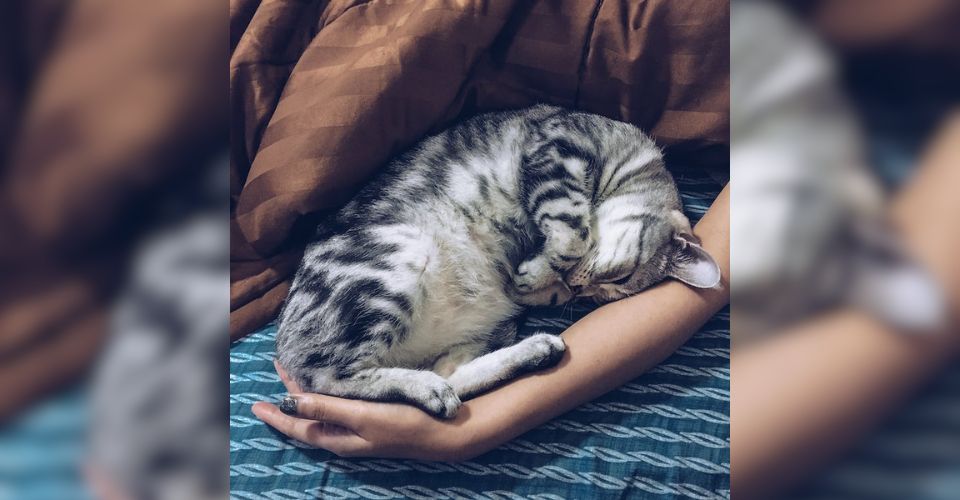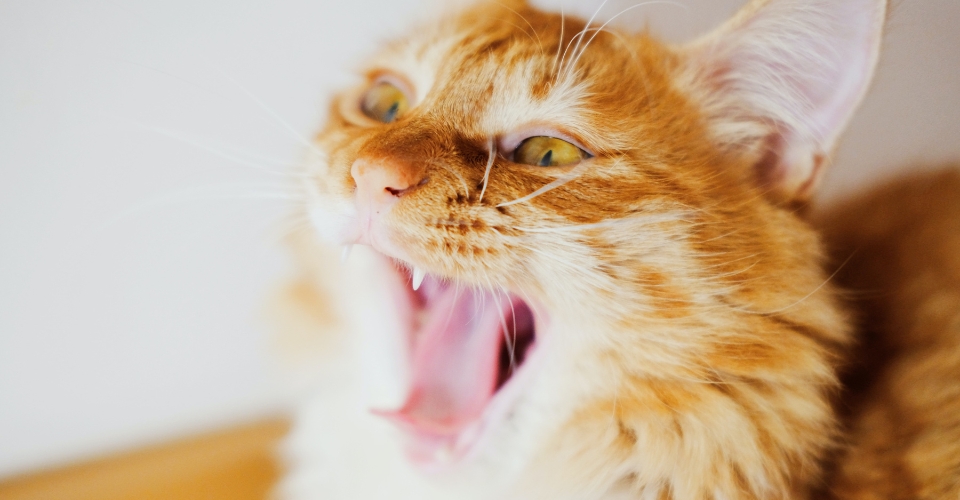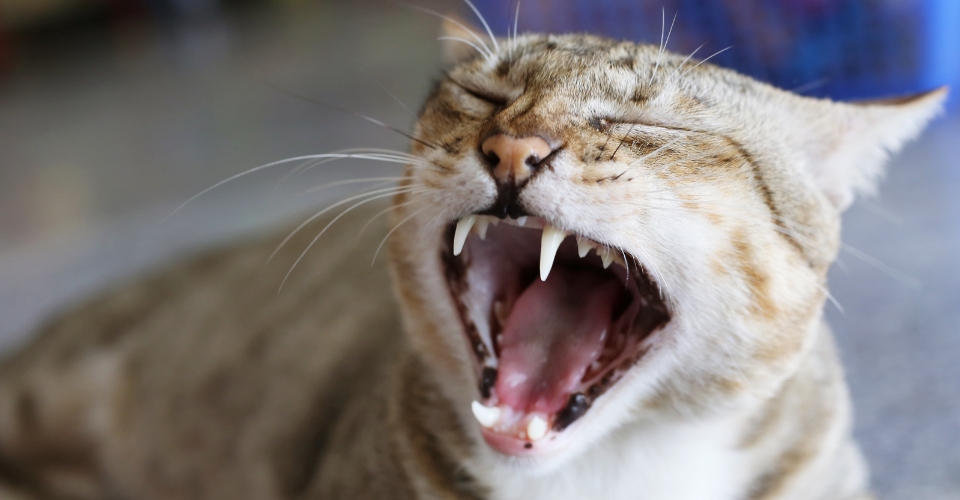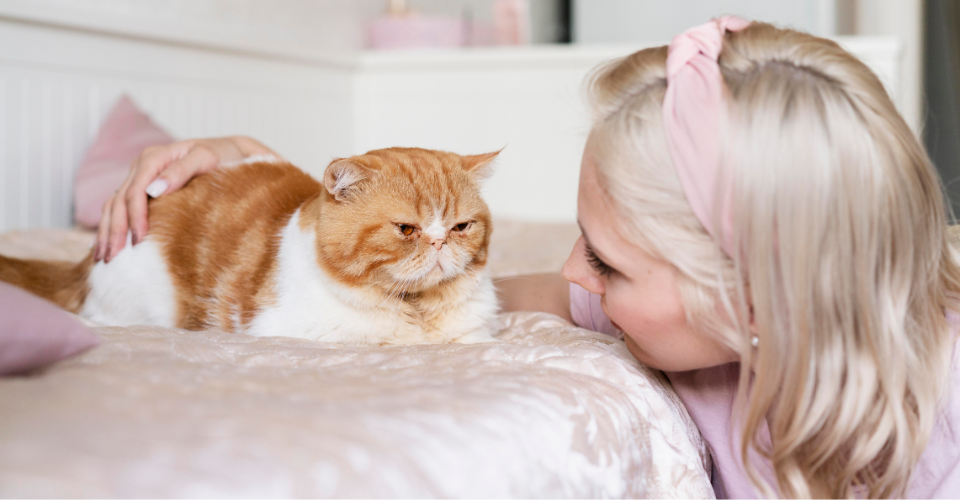Soon as a cat catches a whiff of bleach, it goes all Rambo on the disinfected surface. It will try to lick, roll over, and act totally crazy. If the area cleaned with bleach is locked out, the kitty will try to access it with all its might.
But why do cats like bleach in the first place? It is simply a disinfectant that keeps many pathogens away, including those affecting pets.
Or used to remove some really nasty stains off our clothing.
Grab a seat and ease into a comfortable position to discover the “why” and what you can do.
Why Do Cats Like Bleach?
Some cats really like the smell of bleach. Others would not care much. The ones that do like it go crazy if they catch a whiff of it and try to come in contact with it.
Two possible explanations are offered.
One, cats perceive the scent of bleach or ammonia-containing chemicals to be similar to their pee. Strange but true.
Understand that cats find familiarity in space by marking it with their own smell. It can include marking some spots with their pee. Naturally, they wish to examine the surface to identify if there is a new cat in their territory.
This feeling can get so powerful that some may even try to mark it with their urine to claim the territory.
The second explanation has to do with pheromones. Smells humans cannot detect but have a profound effect on cats. In this case, bleach or other chlorine-containing compounds result in an intoxicating neurological reaction in cats.
They may try to smell, roll over into, lick, and even ingest the bleach.
It can result in mild to severe toxicity in cats. Therefore, all efforts must be made to keep it out of their reach in a locked cabinet.
Eye or skin exposure needs to be immediately washed. If they manage to ingest it, they should be given plenty of water to protect their gastrointestinal tract. If the symptoms persist, a higher concentration or a large amount is ingested, then immediate care must be provided.
What kind of Chemical is Bleach?
It lies there safely in your cleaning cabinet, among other products. Every time the kids or pets catch a transferable disease, you take it out along with the detergent for deep cleaning.
But what kind of chemical is bleach? Simply put, it is the most common chlorine (sodium hypochlorite) or even peroxide (hydrogen peroxide) based chemical to clear pathogens.
Common household cleaning products have approximately 5% or up to 10% bleach. But industrial products can have a concentration of up to 50%.
Reasons Why Cats Go Crazy for Bleach
Not all cats give a similar reaction to bleach. Some would not care, but others would totally go crazy after it.
Let’s find out what about chlorine makes some kitties go crazy.
Cats Like Bleach Because it Smells Like Their Pee
Umm, you may not have seen this coming. But the vet at Catvet says that the way cats perceive smells, bleach smells pretty much like a cat’s pee to them.
Strange, right? Because bleach has a very overpowering smell but is nothing like cat urine.
But then, there is a huge difference between the sharpness of our senses and our companion animals. Clearly, they have got more powerful “gadgets” to survive in the wild.
Coming back to the cat’s perception, who can stop a cat from inspecting a site that smells like urine? That is how cats mark their territory. And they need to find out whose smell it is. A strong motive to go smell the surface.
In extreme cases, though, the cat may try to mark the surface disinfected with bleach.
Avoid the situation by rinsing the surface after giving it a contact time of 10 – 15 minutes to avoid such issues. For additional protection, create potpourri with orange rind to discourage the cat from peeing there.
Cats dislike certain smells, and using orange or lemon peel is one way to keep your cat from marking the surface.
Cats Like Bleach Because of the Effect Its Smell Has On Them
We know cats navigate their territory by marking it with their scent. That is why a visit to the vet is so hard on them—they lose their sense of smell or familiarity.
Bleach or any other chlorine-based chemical has an intoxicating effect on the kitties.
Look at this cute Siamese kitty losing it over the smell of bleach.
The strong scent attacks their sharp senses and results in an ecstatic reaction of sorts. That is when you find them going crazy to access the source of the smell. They try to roll over, rub their body against the surface that has been cleaned with bleach, and rub their nose, trying to smell it.
If the room disinfected with bleach is locked, the cat will go crazy trying to get closer and smell it. The effect is so overpowering that they begin to drool.
Experts say the chemical has a similar effect on them as catnip. One that can be explained as the human equivalent of getting high.
If left unattended, cats may try to ingest bleach as well.
You can find them drooling when exposed to it. It has something to do with a hormonal reaction to pheromones.
In fact, their ability to react to pheromones is roped in to keep them behaving peacefully—chemicals dispersed through plugged devices that smelled similar to their mother’s scent.
Now you understand what makes them go crazy over bleach. It is time we learned how the chemical be handled around them.
Addressing the Interaction between Cats and Bleach
Cats get ecstatic when they detect the smell of bleach. They will do all in their power to try and access it. But so far, we only understand the effect it has on their senses.
Is Bleach Poisonous to Cats?
Yes, no doubt about it. Bleach can be poisonous for cats if ingested or absorbed in excess amounts. Even directly inhaling the fumes can be dangerous.
Depending on the concentration and quantity of bleach exposure, the toxic effects could range from mild to severe.
Typically, the chemical is diluted with water before use.
Exposure to this form is not as dangerous, but it is still a reason to worry and be careful. It is the original chemical in the undiluted form that can have serious consequences. Listed below are typical effects of bleach poisoning on cats.
- Ingestion can result in excessive drooling, vomiting, loss of appetite, and loss of energy.
- Exposure to the eye causes an emergency.
- Lesser common impacts of exposure are respiratory problems, diarrhea, and excessive thirst.
- Skin exposure can cause anything from redness and irritation to erythema (mild skin infection), edema (swelling), and fur bleach.
- Ingesting a great deal of concentrated bleach could cause ulcers in the mouth and tongue or damage to the esophagus.
- Peroxide bleach can cause similar irritation to the skin, excessive drooling, nausea, vomiting, and a loss of appetite. Risks of ulcers in the mouth, on the tongue, and tummy pain exist.
- Since peroxides have a discoloration effect, contact with the skin will result in fur bleach.
- Excessive ingestion of hydrogen peroxide in cats may even result in local tissue damage. The outcomes can include gastritis and haematemesis.
What to Do If Cat Ingests or Interacts with Bleach?
Considering the serious damage bleach can cause, and the fascination cats have with it, it is in the best interest of pet parents to understand how to handle exposure.
Shared below are varying degrees of exposure to bleach and what you should do in those situations.
- If the catwalks on to spilled bleach, immediately wash its fur with lots of water and mild soap. Make sure to clean their paws and paw pads thoroughly.
- Do not try to induce vomiting in case of ingestion, for it will cause more damage on the way up.
- Small amounts of ingestion of bleach can be treated at home by giving the cat some water to dilute the chemical. Or let it vomit and return to normal without any other symptoms.
- In case of ingestion, if you notice the kitty is drooling but not vomiting, encourage it to drink water to dilute the chemical. Add water to its food if it refuses to drink.
- Ingestion of ultra-bleach or hydrogen peroxide calls for an emergency visit to the vet.
- A bleach splash on the eye is an emergency. Wash it with water for five minutes, and find immediate veterinary care.
- If your kitty shows signs of difficulty breathing, unconsciousness, or seizures, this is an emergency and requires immediate veterinary attention.
How to Store and Use Bleach in a House with Cats?
Phew, that was one hell of an emotional ride, having to learn about such serious consequences of bleach exposure in cats.
This means you need to find ways to keep bleach out of the reach of your cat because kitty dearest has a thing for this disinfectant. Read along to find out ways you can practice the safe use and storage of bleach.
- Lock away all your cleaning chemicals, including bleach, in a secure cabinet. Ensure it is properly locked, as some cats can be innovative in opening closed cabinets.
- Always use a 1:32 ratio between bleach and water for effective disinfection against pathogens. The concentration is less harmful if the cat is exposed to it. Let it stay for 1-15 minutes to do its job, and then rinse with clean water.
- Place the cat in a separate location when using bleach in a place, ensuring the cat cannot access it until the surface is mopped and completely dried out. You can put your cat in its crate until you are done cleaning and the bleach smell has subsided.
- Quickly soak up and rinse if bleach spills on a surface.
- Make a fresh batch for disinfection before use, and do not leave it unattended for the cat to sample.
- For the pet’s safety, keep the lid of the toilet bowls closed after disinfecting them with bleach. This will prevent the cat from trying to lick the bleach on its surface.
FAQs?
Why does my cat attack my hands after I use bleach?
Cats like bleach. Its smell has an intoxicating effect on them. They want to lick, rub their cheeks, and try to smell the surface where they can find bleach. So, put on some sturdy gloves when using bleach, and thoroughly wash your hands afterward to avoid any crazy reaction from your cat.
Can we use bleach to clean cat urine?
No way. Urine has ammonia, and cat urine has higher levels of ammonia than human urine. The chlorine content in bleach will react with ammonia to release chlorine gas. The gas happens to be toxic, and the entire chemical reaction ends up worsening the smell. Always thoroughly wash an item of soiled clothing or surface with detergent, removing all organic matter before treating it with chlorine to disinfect.

